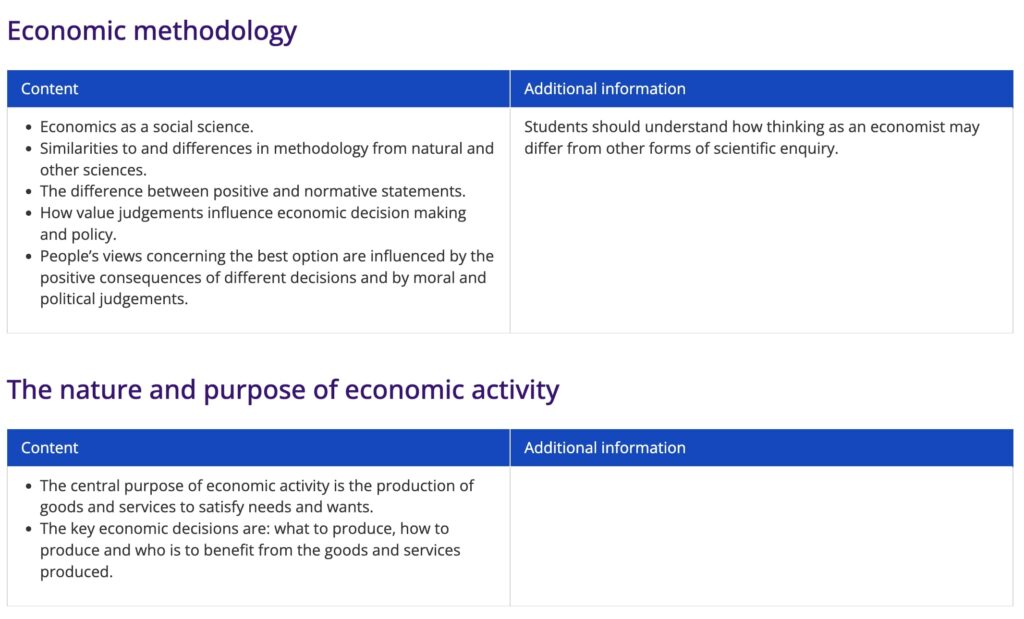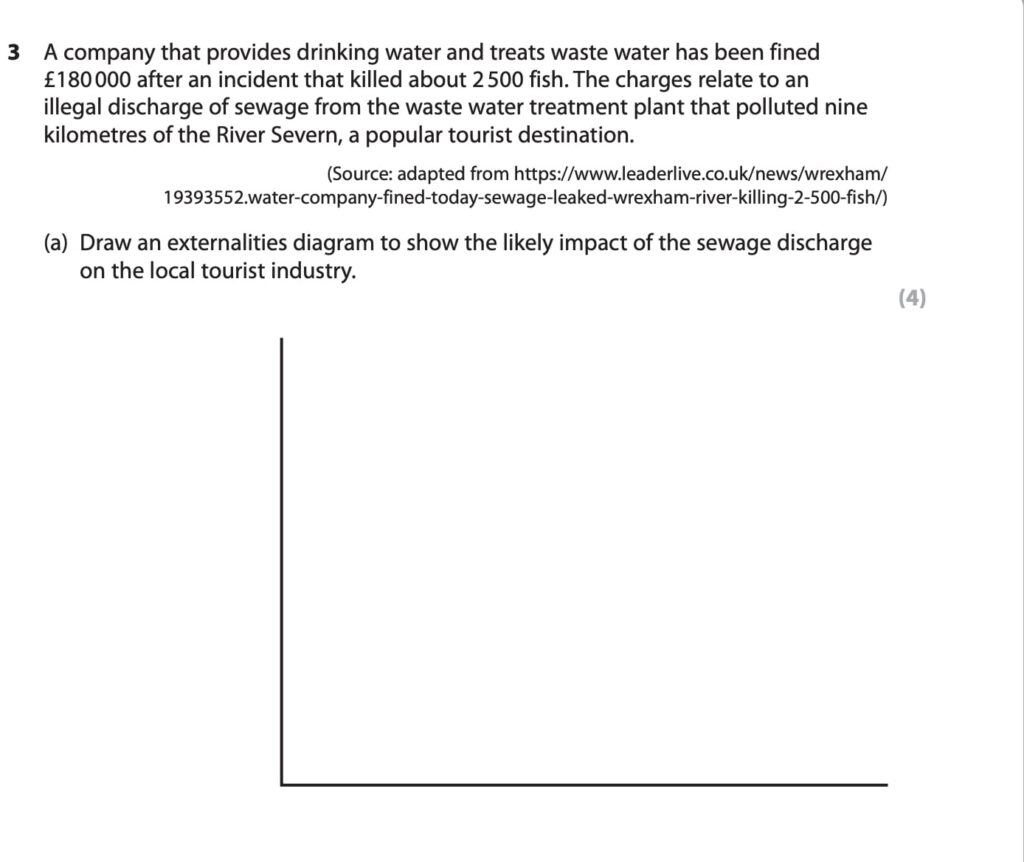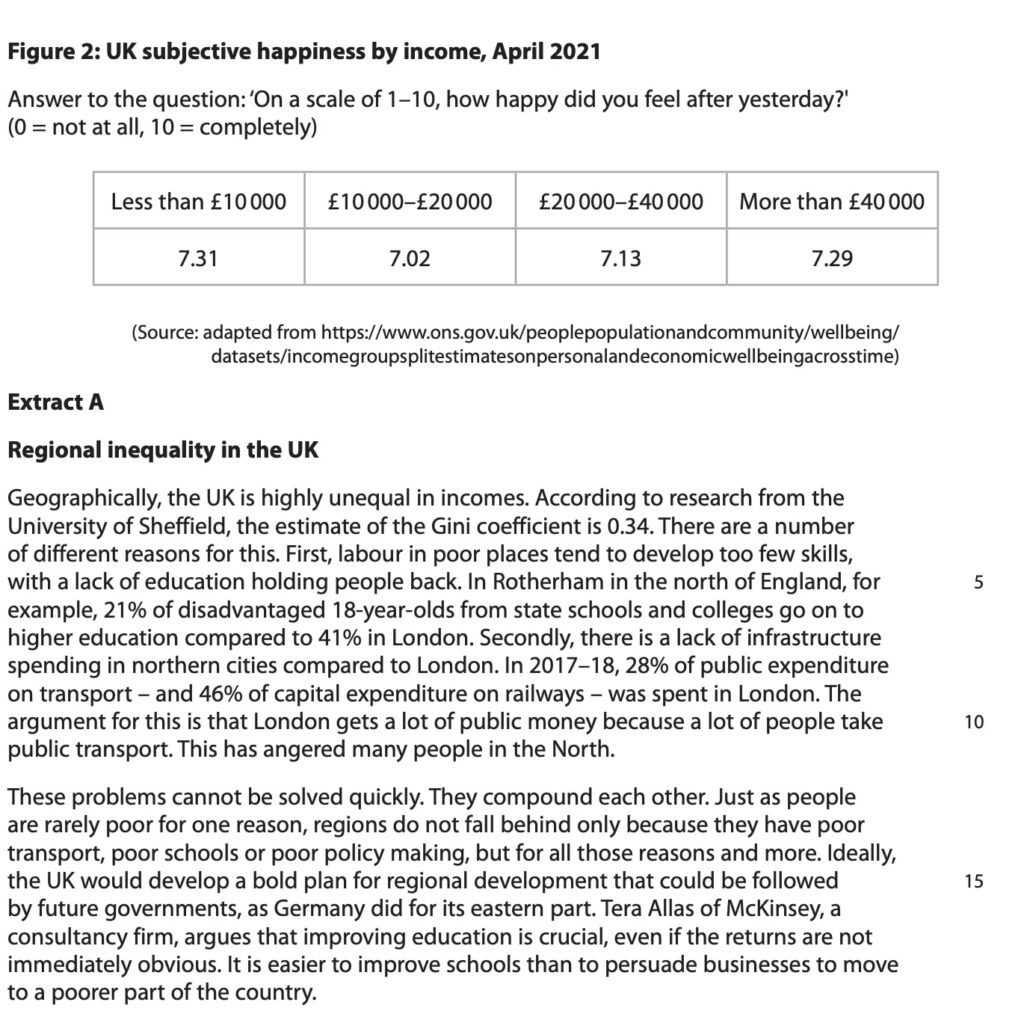Is A-level Economics Hard? – Should You Choose it?!
A-Level Economics, a subject that helps students understand how economies operate and the impact of financial decisions. A common questions arise: “Is A-Level Economics hard?” “Should I do A-level Economics?”
The answer isn’t yes or no. Mostly, students find content manageable. But, getting good grades in A-Level Economics is less about the difficulty and more about the skill in applying this knowledge. It involves developing exam techniques and improving essay writing skills. While subject challenges students to apply theory to real-world issues, success also hinges on clear communication and strong writing skills, particularly in essays. That’s why many students who take Economics also benefit from subjects like A-Level English Literature, which helps develop critical thinking, structured argumentation, and analytical writing. These are transferable skills that boost performance across essay-based subjects.
A-Level Economics Syllabus

The A-Level Economics syllabus is a blend of two critical areas: Microeconomics and Macroeconomics.
Microeconomics delves into individual economic units, focusing on market interactions and consumer behaviour. It’s often perceived as more concrete with relatable concepts, but can be intricate in its analysis of market dynamics.
In contrast, Macroeconomics takes a broader view, examining national and global economic systems. Specifically, it encompasses topics like inflation, unemployment, and economic policies, and is often seen as more abstract, yet still crucial for understanding broader economic trends.
The volume of content in this subject is substantial, demanding thorough understanding and application. Each area presents its own set of challenges, with the difficulty often lying not in the concepts themselves, but in their application and the depth of understanding required.
Does A-Level Economics Contain Too Much Maths?
A common concern among students is the mathematical component of the course.
While A-level economics does involve a certain level of mathematical analysis, it’s important to note that the maths is not overwhelmingly complex. It typically includes basic algebra and graphical interpretations rather than advanced calculus or statistics.


The key is understanding how these mathematical concepts apply to economic theories and models. For students comfortable with GCSE level maths, the mathematical demands of A-Level Economics are generally manageable and are more about application than advanced computation.
Is A-Level Economics Harder Than GCSE Economics?
When comparing A-Level Economics with GCSE Economics, there’s a notable difference in complexity and depth.
While GCSE Economics lays the groundwork with basic concepts and introductory knowledge, A-Level Economics dives much deeper. This advanced level demands a stronger analytical skill set, requiring students to not only understand but also critically evaluate and apply economic theories. The transition involves a shift from surface-level understanding to a more nuanced, detailed exploration of economic principles. This jump in academic rigour is a key factor that makes subject more challenging than its GCSE counterpart.
A-Level Economics Grades – Is It Hard to Achieve A* in A-level Economics?
Reviewing A-Level Economics grades over the years can offer insights into the subject’s scoring trends.
Generally, the grade distribution suggests a moderate level of difficulty in achieving top grades. However, it’s important to consider that this distribution also reflects the varying abilities and preparation levels of students. Historically, a significant percentage of students manage to score higher grades, indicating that with diligent study and strong exam strategies, excelling in this subject is attainable.
- 2023 saw a remarkable surge in top grades, with 29% of students scoring A or A*, highlighting the importance of adapting to changing exam formats and utilising effective study strategies.
- 2022 saw 17.7% of A-Level Economics students securing A* or A, showcasing the potential for success with dedicated effort.
- This figure, however, sits 12.4% lower than pre-pandemic averages, emphasising the impact of external factors on exam performance.
- Looking deeper, 42.3% of students consistently score B or higher, demonstrating that strong grasp of concepts combined with effective exam technique paves the way for solid results.
What are the Good Subject Combinations with A-level Economics?

A-level Maths and A-level Economics
Maths arms you with analytical skills, decoding economic models and crunching numbers with ease. It can help you through complex theories and make sense of the quantitative side of the force.
A-level History, A-level Politics and A-level Economics
These subjects offer a deep dive into the past and present, showing how policies and political landscapes shape economies. You’ll understand historical booms and busts, navigate the budget battles, and see economic decisions through the lens of power and influence.
A-level Business Studies and A-level Economics
Business Studies equips you with the practical tools – marketing, finance, and management skills – to transform economic theories into real-world action.
A-level Geography, A-level Sociology and A-level Economics
Geography explores the intricate relationship between economic forces and diverse landscapes and populations. Sociology sheds light on social structures and cultural influences, shaping how people behave in economic situations. These subjects offer a broader perspective.
Expert Bonus: If you’re feeling a bit adventurous, languages can open doors to international business communication. Psychology unlocks the secrets of consumer behaviour. And Computer Science lets you code your own economic models. The possibilities are endless! Just remember, there’s no one-size-fits-all choice.
Choose subjects that align with your interests, career aspirations, and learning style. Experiment, mix and match, and build a team that supports your unique economic journey. With the right companions, A-Level Economics will be your epic quest, not just another class.
Hardest A-Level Subjects
- A-level Further Mathematics – Advanced level of mathematics requiring strong analytical skills.
- A-level Physics – Involves complex theories and mathematical applications.
- A-level Chemistry – Requires understanding intricate concepts and laboratory skills.
- A-level Biology – Dense with content, requiring extensive memorisation.
- A-level Modern Foreign Languages – Demanding due to the need for fluency and cultural understanding.
- A-level History – Involves a significant amount of reading and essay writing.
- A-level English Literature – Requires critical analysis of complex texts.
Each subject has its unique challenges, making them some of the hardest A-Level subjects according to student experiences.
To Sum it Up
In summary, A-Level Economics presents a balanced challenge. While the content itself may not be overly complex, success hinges on application, strong exam techniques, and essay writing skills. Compared to GCSE Economics, it’s more demanding, requiring deeper analytical thinking. Choosing complementary subjects can further enhance understanding and performance.
Many students also take on part-time work during their A-Levels, which adds another layer of responsibility. If you’re trying to balance both, this guide on juggling part-time work and A-Levels offers practical strategies to help you stay focused without compromising your studies.
While A-level Economics is not among the hardest A-Levels, it demands dedication and a clear study strategy. For additional support, students can turn to platforms like Edumentors, an online tutoring service that provides A-level Economics guidance for students aiming to excel and gain admission to their top-choice schools.
Good luck!








